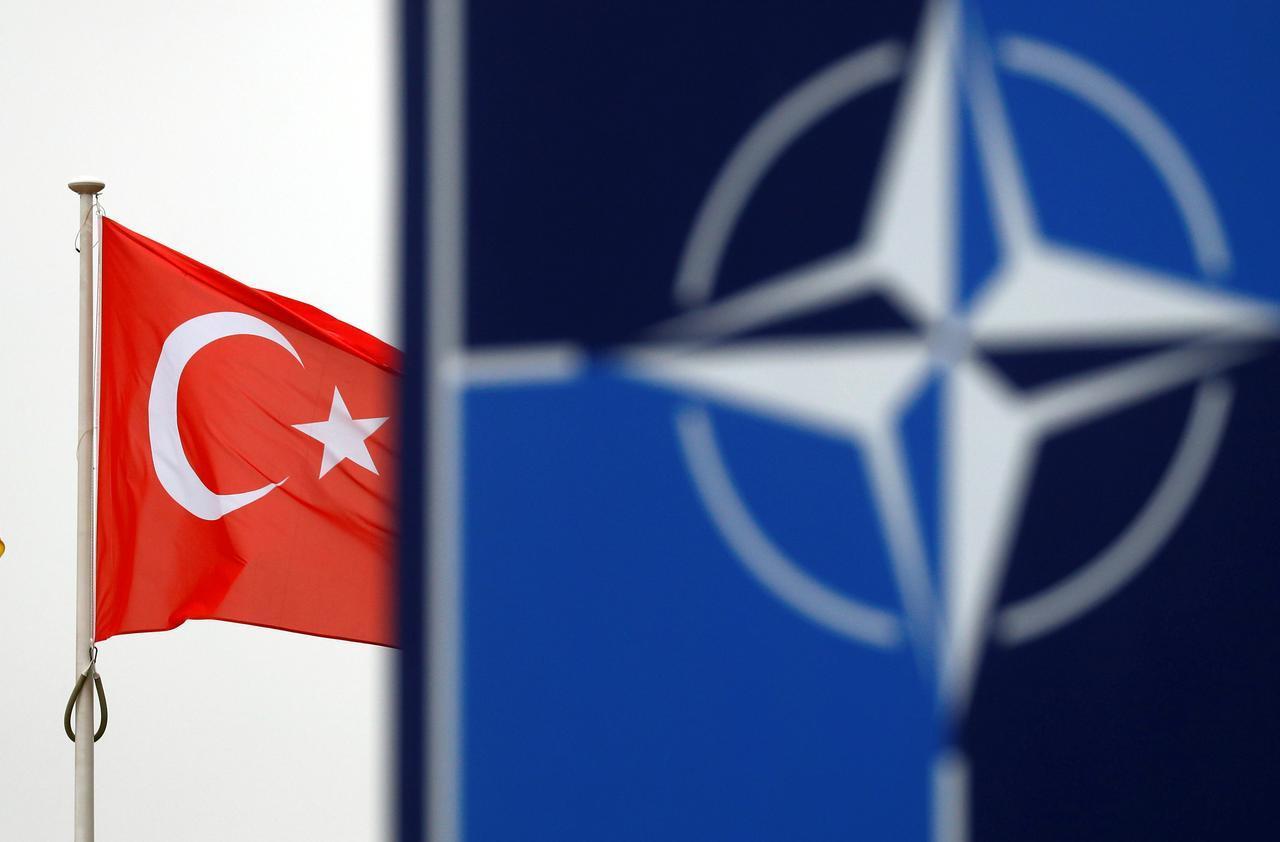
President Recep Tayyip Erdoğan will attend the NATO Summit in London where the allies will mark the alliance’s 70th anniversary on Dec. 3-4, and the threat posed to Turkey by the YPG and the issue of foreign ISIL fighters will top Turkey’s agenda in the discussions.
Ankara will also use the NATO summit as a platform to explain the heavy burden Turkey has to handle because of the Syrian crisis with calls on the allies to show solidarity and support its plans to return Syrian refugees to their homeland.
A four-way meeting that will bring together the leaders of Turkey, France, Germany and the United Kingdom to discuss the situation in war-ravaged Syria.
Erdoğan will ask the leaders for support on the “Safe Zone Development Plan” for which Ankara seeks a donation for the reconstruction of northern Syria.
He will also underline that NATO allies have left Turkey alone in its fight against terror, particularly against the YPG/PKK.
Turkey’s military offensive into Syria, “Operation Peace Spring,” has already caused an exchange of criticism among NATO members days ahead of the summit of the military alliance.
French President Emmanuel Macron last week said Turkey should not expect the support of its NATO allies in its anti-terror operation in northern Syria. Macron has also decried NATO’s inability to react to what he called Turkey’s “crazy” offensive into northern Syria.
Erdoğan has harshly slammed the French president over his criticisms of the Turkish military operation into Syria, while urging him to check his own “brain death” before talking about the status of NATO, in reference to the French president’s remarks that the alliance was suffering a “brain death.”
Baltic defense plan versus YPG threat
Turkey is not blackmailing NATO with its rejection of a defense plan for the Baltics and Poland and has full veto rights within the alliance, a Turkish security source said on Dec. 2 ahead of a NATO alliance summit in London.
“NATO is an institution where Turkey has full veto rights, politically and militarily, and there are procedures here,” the source said. “There is no such thing as Turkey blackmailing - a statement like that is unacceptable.”
Turkey has balked at a defense plan for Poland, and the Baltic states are retaliating against some NATO members’ refusal to mention the YPG threat in Syria on a defense plan of the alliance. Ankara has said the impasse was caused by the United States withdrawing support from a separate defense plan for Turkey, covering any possible attack from the south where it borders Syria and that it wanted the issue resolved.
Secretary-General Jens Stoltenberg had been making efforts to solve the deadlock ahead of the summit.
Ankara wants the alliance to support its fight against the YPG, including designating the group a terrorist organization, before it signs off on plans to defend NATO’s eastern flank against Russia.
“Turkey continues to be a vital part of the NATO alliance. Turkey’s geography remains unchanged, of course, and her cultural links from the Balkans to Central Asia have only deepened. Our geography, culture, and commitment to common security will not change,” said Fahrettin Altun, communications director of the Turkish presidency on Twitter.
He recalled that Turkey has the second-largest army in NATO and spends proportionally more on defense each year than major powers like France and Germany. Turkey is also one of the few states nearing NATO’s 2 percent GDP target for defense spending for member nations, Altun noted.
“Turkey’s long and deep commitment to NATO has safeguarded Europe and improved our common security. We believe in the ideals and the ongoing missions of NATO while advocating for a robust debate on the role of the organization for our common security and common future,” he stated.
Greece to raise Libya maritime deal
Meanwhile, Greek Prime Minister Kyriakos Mitsotakis said he will raise the recently inked memorandum of understanding between Turkey and Libya’s United Nations-recognized Government of National Accord (GNA) on the maritime jurisdictions during the NATO Summit.
The agreement determined a portion of Turkey’s maritime jurisdictions in the region, which Greece claims “violating international law.”
The mere presence of the Meis Island -- or, Kastellorizo -- across the Turkish mainland could not have any effect on Ankara’s maritime territories contrary to the arguments of Greece and the Greek Cypriots, according to Turkey’s argument.
“The islands which lie on the opposite side of the median line between two mainlands cannot create maritime jurisdiction areas beyond their territorial waters and that the length and direction of the coasts should be taken into account in delineating maritime jurisdiction areas,” Foreign Ministry spokesman Hami Aksoy said on Dec. 1 in a written statement.